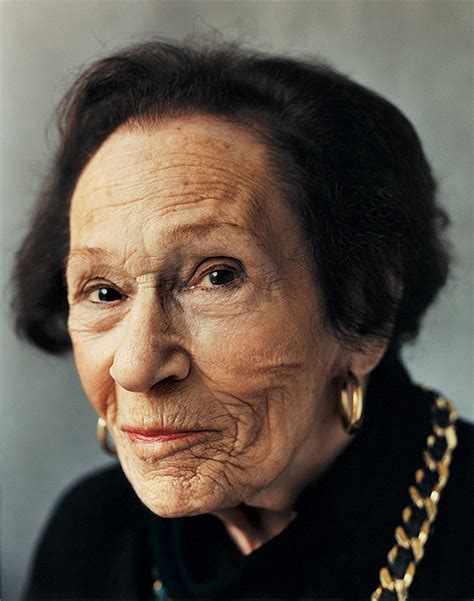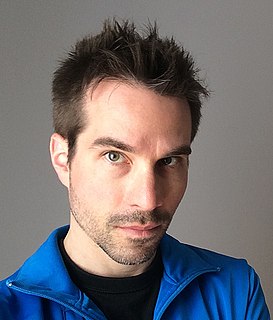A Quote by M. Scott Peck
Human beings are poor examiners, subject to superstition, bias, prejudice, and a PROFOUND tendency to see what they want to see rather than what is really there.
Related Quotes
Some sort of belief in all-powerful supernatural beings is common, if not universal. A tendency to obey authority, perhaps especially in children, a tendency to believe what you're told, a tendency to fear your own death, a tendency to wish to see your loved ones who have died, to wish to see them again, a wish to understand where you came from, where the world came from, all these psychological predispositions, under the right cultural conditions, tend to lead to people believing in things for which there is no evidence.
We go to sea repeatedly from Melville's time on - and the image of men at sea, like the image of men in the wilderness, seems to me to be almost an archetypal image of human beings on their own, human beings making their own way, guiding themselves by the stars they can see - rather than by faith or prayer or invisible forces.
Artists use frauds to make human beings seem more wonderful than they really are. Dancers show us human beings who move much more gracefully than human beings really move. Films and books and plays show us people talking much more entertainingly than people really talk, make paltry human enterprises seem important. Singers and musicians show us human beings making sounds far more lovely than human beings really make. Architects give us temples in which something marvelous is obviously going on. Actually, practically nothing is going on.
Even a fellow with a camera has his favourite subjects, as we can see looking through the Kodak-albums of our friends. One amateur prefers the family group, another bathing scenes, another cows upon an alp, or kittens held upside down in the arms of a black-faced child. The tendency to choose one subject rather than another indicates the photographer's temperament. Nevertheless, his passion is for photography rather than for selection, a kitten will serve when no cows are available.
Human beings are complicated and flawed and unique, but we all have a story to tell. Gone are the days where our lead characters can only look like somebody else. Heroes look like all of us. We see ourselves in each others' stories. We see who we are. We see who we want to be. Sometimes we see who we don't want to be. And through that we have a greater understanding of ourselves and acceptance of each other.
I believe that nothing can be more abstract, more unreal, than what we actually see. We know that all we can see of the objective world, as human beings, never really exists as we see and understand it. Matter exists, of course, but has no intrinsic meaning of its own, such as the meanings that we attach to it. We can know only that a cup is a cup, that a tree is a tree.
It is a simple matter to see the obvious, to do the expected. The tendency of the individual life is to be static rather than dynamic, and this tendency is made into a propulsion by civilization, where the obvious only is seen, and the unexpected rarely happens. When the unexpected does happen, however, and when it is of sufficiently grave import, the unfit perish. They do not see what is not obvious, are unable to do the unexpected, are incapable of adjusting their well-grooved lives to other and strange grooves. In short, when they come to the end of their own groove, they die.
Those afraid of the universe as it really is, those who pretend to nonexistent knowledge and envision a Cosmos centered on human beings will prefer the fleeting comforts of superstition. They avoid rather than confront the world. But those with the courage to explore the weave and structure of the Cosmos, even where it differs profoundly from their wishes and prejudices, will penetrate its deepest mysteries.





































